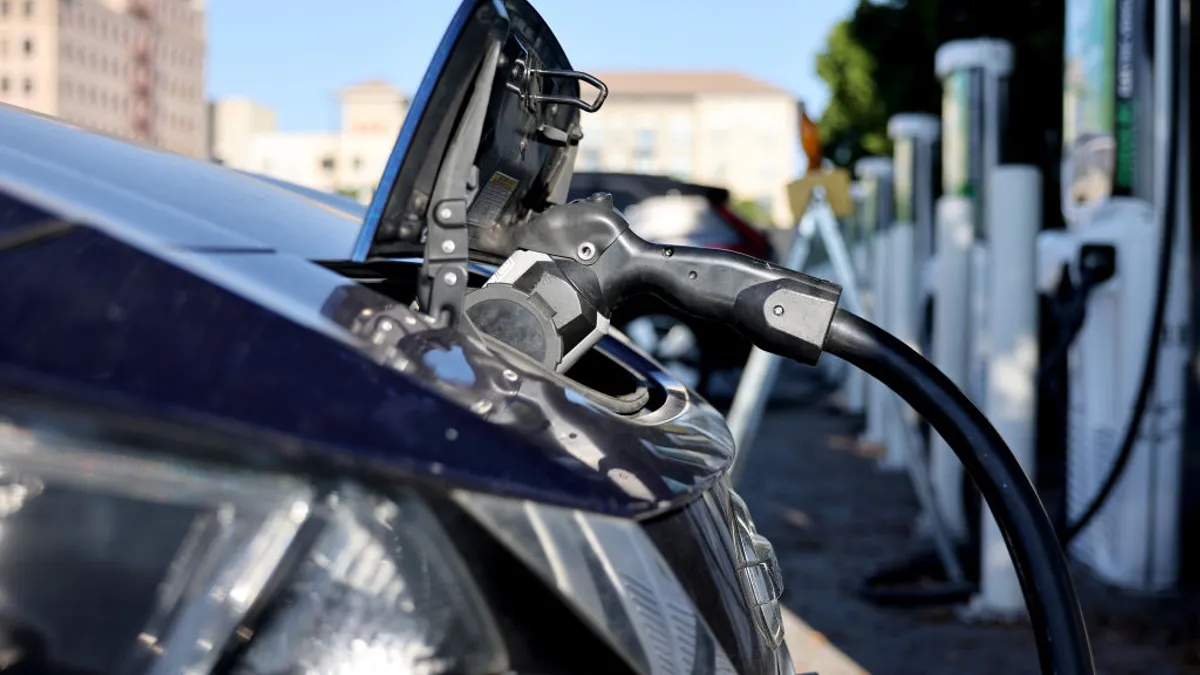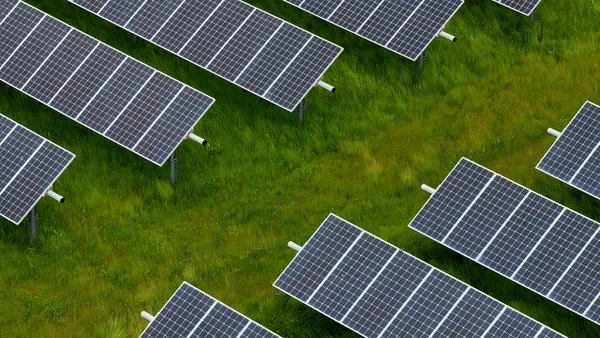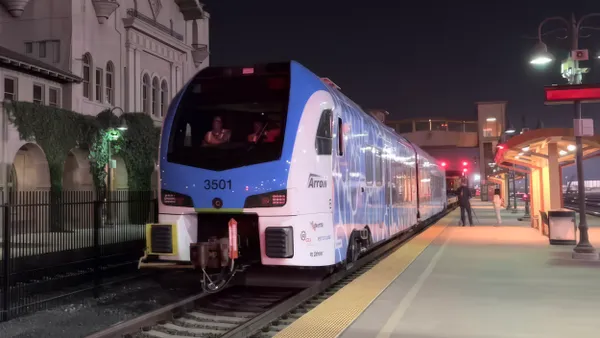Nissan is the latest automaker to join a coalition of companies developing a software platform to make electric vehicle charging easier and less expensive while also sending electricity back to the power grid, according to an Oct. 7 press release.
The Japan-based carmaker will have a 25% stake in ChargeScape, a joint venture launched in September by BMW, Ford and Honda and initially announced in 2023.
“Nissan's decision to join us underscores their commitment to helping customers charge more cheaply and sustainably and highlights ChargeScape’s central position in the vehicle-grid integration space,” ChargeScape CEO Joseph Vellone said in a statement.
At ChargeScape’s launch, Vellone said the platform is intended to “transform EVs from a liability into an asset for the power grid and help deliver a clean transportation future for our country.”
EV drivers who use the software will save money on charging while contributing to a more stable power grid. EV owners can access financial incentives including cash-back benefits by charging their vehicles during off-peak times, according to ChargeScape.
Additionally, the software’s vehicle-to-grid technology allows EVs to communicate with the power grid, unlocking when best to charge, according to ChargeScape. The platform also allows EV owners to sell stored energy back to utility companies.
Nissan is experienced with bidirectional charging, as the automaker’s Leaf EVs could power homes in Japan in case of outages as early as 2012.
“ChargeScape helps us more conveniently and effectively connect utilities to EV drivers, making the ownership experience more valuable for drivers by giving them incentives for participating in managed charging and vehicle-to-grid programs,” said Kent O’Hara, president of Nissan’s 4R battery business, said in a statement.
Nissan said it is “investing heavily” in bidirectional charging for its EVs globally. The ChargeScape platform and its plans to build virtual power plants in the U.S. and elsewhere will likely assist the OEM in its bidirectional charging strategy for its growing suite of EVs, according to Nissan.
Other EV makers also have been developing V2G technology. Tesla said it may be ready to introduce it by 2025.














